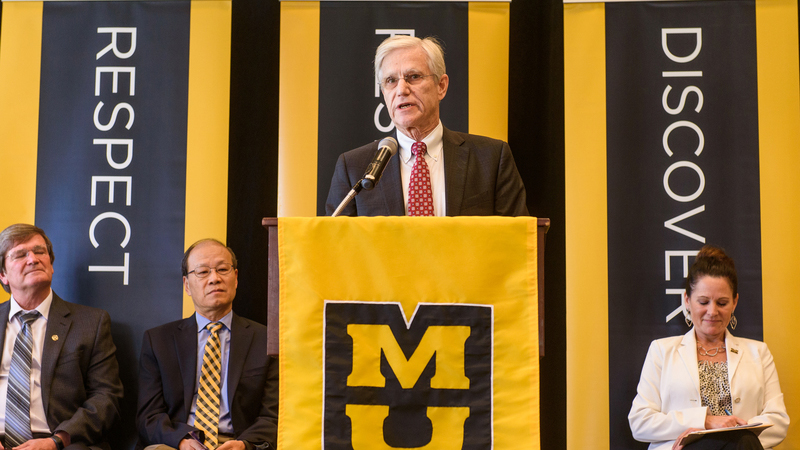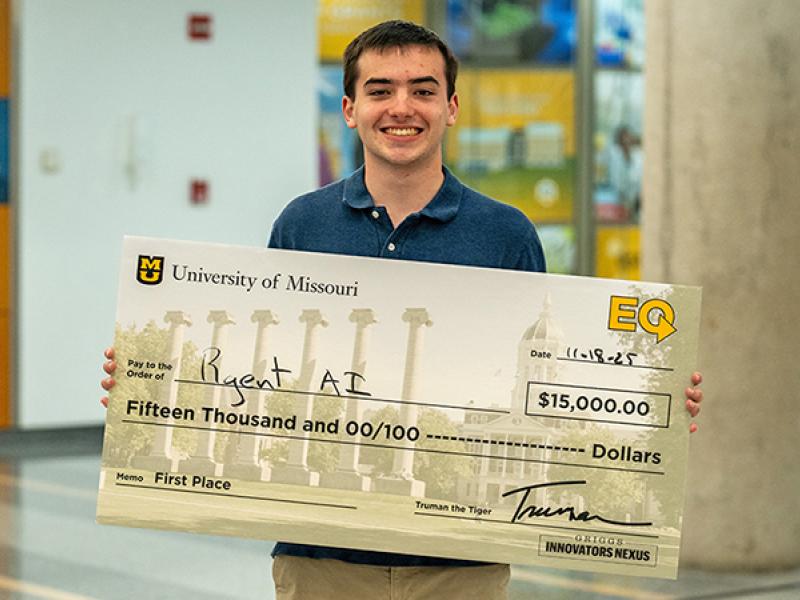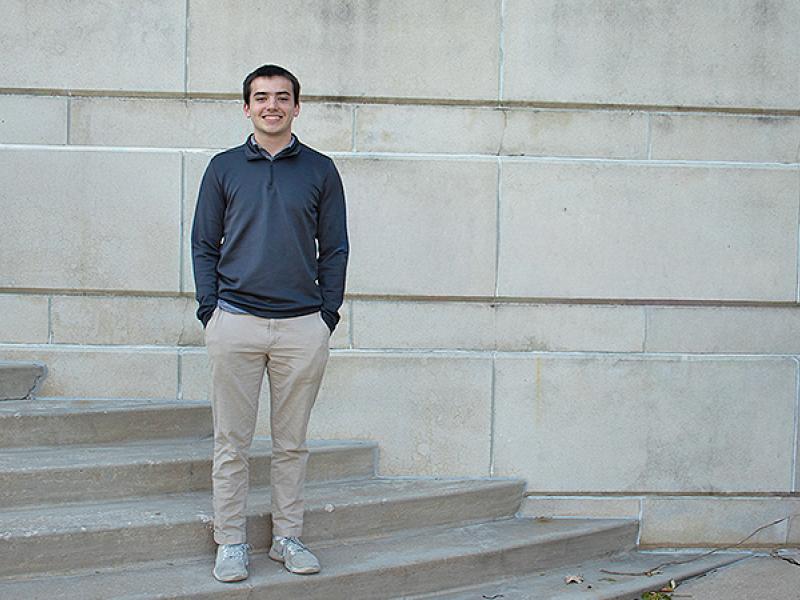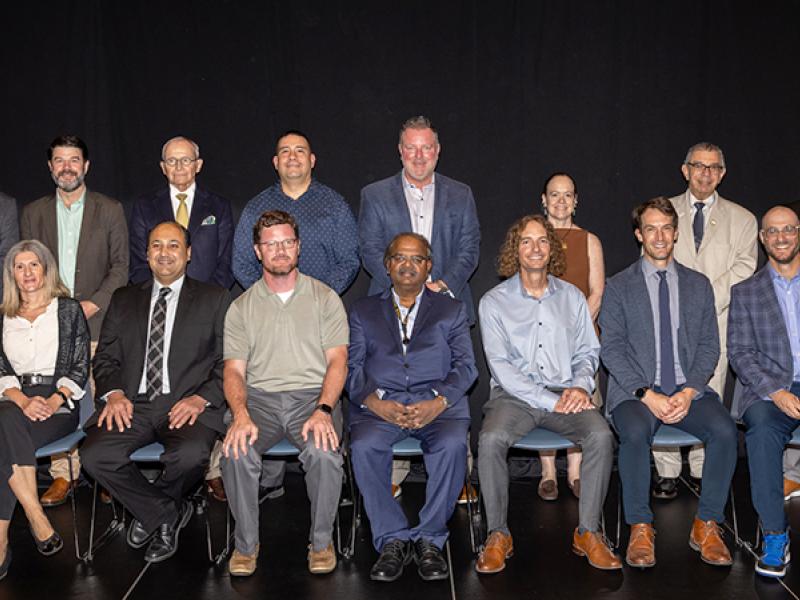
The University of Missouri’s Coulter Biomedical Accelerator Program today awarded five grants totaling approximately $500,000 to accelerate promising biomedical research innovations into products that can improve patient care.
“This program truly is a testament to the depth and breadth of research performed at the University of Missouri,” said Mark McIntosh, PhD, interim vice chancellor for research, graduate studies and economic development at the University of Missouri. “Our partnership between the University of Missouri and the Wallace H. Coulter Foundation is based on our common goal of transforming research discoveries into health care innovations that improve patients’ lives.”
When the MU Coulter Biomedical Accelerator Program began in 2012, the Wallace H. Coulter Foundation agreed to fund it for five years. Although the partnership with the Coulter Foundation will end in mid-2017, McIntosh today announced that MU will extend the program for five more years, providing $800,000 each year. McIntosh said MU hopes to raise another $200,000 each year from grants and gifts.
The five interdisciplinary research teams that received grants this year include faculty members from the MU College of Engineering and the MU School of Medicine. The grants will fund research projects including an inexpensive and disposable storage device for human corneas. The storage device will allow corneas to be stored safely for longer periods of time to better meet the growing demand for human corneal transplants around the world.
“At MU, we are known for working across disciplines to solve complex problems and to make important discoveries,” said Patrick Delafontaine, MD, Hugh E. and Sarah Stephenson Dean of the University of Missouri School of Medicine. “With more than 1,000 biomedical scientists and engineers — all on one campus — efforts such as the Coulter Biomedical Accelerator program position MU to transform ideas and discoveries into products, services and solutions that can dramatically improve patients’ lives.”
MU’s Coulter Biomedical Accelerator program provides annual awards to researchers whose projects demonstrate great scientific potential and meet a well-defined health care need. The projects are reviewed by a committee that includes entrepreneurs, accomplished researchers and venture capital investors.
“The Coulter Biomedical Accelerator Program is a shining example of what an institution such as ours can do within such a collaborative atmosphere with the proper resources,” said Elizabeth Loboa, PhD, dean of the College of Engineering at the University of Missouri. “The proximity of our College of Engineering to the Schools of Veterinary Medicine and Medicine, which are within walking distance, promotes biomedical innovation in ways that cannot be achieved elsewhere.”
MU is one of only 16 academic institutions in the country and the only university in Missouri offering a Coulter Biomedical Accelerator Program. The 2016 Coulter Biomedical Accelerator program awards of approximately $100,000 each were given to five teams with a total of 11 researchers to fund the following projects:
OsteoGel: Injectable Osteomodulatory Hydrogels for Vertebral Compression Fracture Repair: Bret Ulery, PhD, assistant professor in the Department of Chemical Engineering, and Christina Goldstein, MD, assistant professor in the Department of Orthopaedic Surgery, are developing a novel biomaterial to treat vertebral compression fractures in patients with osteoporosis. Their solution uses hydrogels that have been modified to mimic normal bone biomechanics and provide mechanical support while promoting bone healing for the patient.
Corneal Cryopreservation and Storage System: Xu Han, PhD, assistant research professor in the Department of Mechanical and Aerospace Engineering, and Frederick Fraunfelder, MD, Roy E. Mason and Elizabeth Patee Mason Distinguished Professor and chair of the Department of Ophthalmology, have developed an inexpensive and disposable storage device that protects corneal tissue from damage caused by extracellular ice formation during the freezing process. This storage method has the potential to increase the amount of corneal transplants performed each year, especially in countries that must rely on imported corneas and are unable to use them due to the current 14-day storage limit, which are difficult to obtain in sufficient quantities due to the current 14-day storage limit.
Near Infrared Navigation System (NAVI) for Image-guided Surgery in Coronary Artery Bypass Grafting: Raghuraman Kannan, PhD, associate professor in the Department of Radiology and the Department of Bioengineering, and Ajit Tharakan, MD, assistant professor in the Department of Surgery, developed a portable, low cost near-infrared fluorescent system (NAVI) that enables real-time visualization of blood flow during coronary artery bypass grafting surgeries. The system makes it easier to know when blood flow is restored in the newly grafted artery prior to closing the patient’s chest.
ENSUR: A Novel Diagnostic Prenatal Genetic Test: Raghuraman Kannan, PhD, associate professor in the Department of Radiology and the Department of Bioengineering, and Danny Schust, MD, associate professor of clinical obstetrics and gynecology in the Department of Obstetrics, Gynecology and Women’s Health, have developed a novel diagnostic prenatal genetic test through a proprietary method for selective isolation of fetal cells collected from a vaginal swab. The fetal cells collected in this non-invasive manner contain the complete genetic profile of the fetus.
Down the Hatch Solutions: Filiz Bunyak Ersoy, PhD, assistant research professor in the Department of Computer Science; Zhihai (Henry) He, PhD, professor in the Department of Electrical and Computer Engineering; and Teresa Lever, PhD, assistant professor in the Department of Otolaryngology, are developing a novel clinical tool to assess laryngeal adductor reflex (LAR) in patients with dysphagia, a swallowing impairment that can come as a result of stroke, neurologic diseases, cancer and congenital abnormalities. The tool enables clinicians to visualize the entire larynx during endoscopic LAR testing and permits automated quantification of several novel outcome measures from video-recorded LAR responses.
Since its inception, the Coulter Biomedical Accelerator program has helped MU research projects generate more than $11 million in new government grants and has led to the creation of multiple startup companies. To date, these companies have raised more than $1.6 million from early-stage investors, with one company also successfully sublicensing Coulter technology to a global translational genomics company.
“The awards we announced today are designed to bridge the funding gap for promising research projects that have excellent market potential but require more investment to advance through the research and commercialization process,” said Cynthia Helphingstine, PhD, director of MU’s Coulter Biomedical Accelerator program. “Our Coulter Biomedical Accelerator program is another example of the strength of interdisciplinary collaboration at the University of Missouri.”





